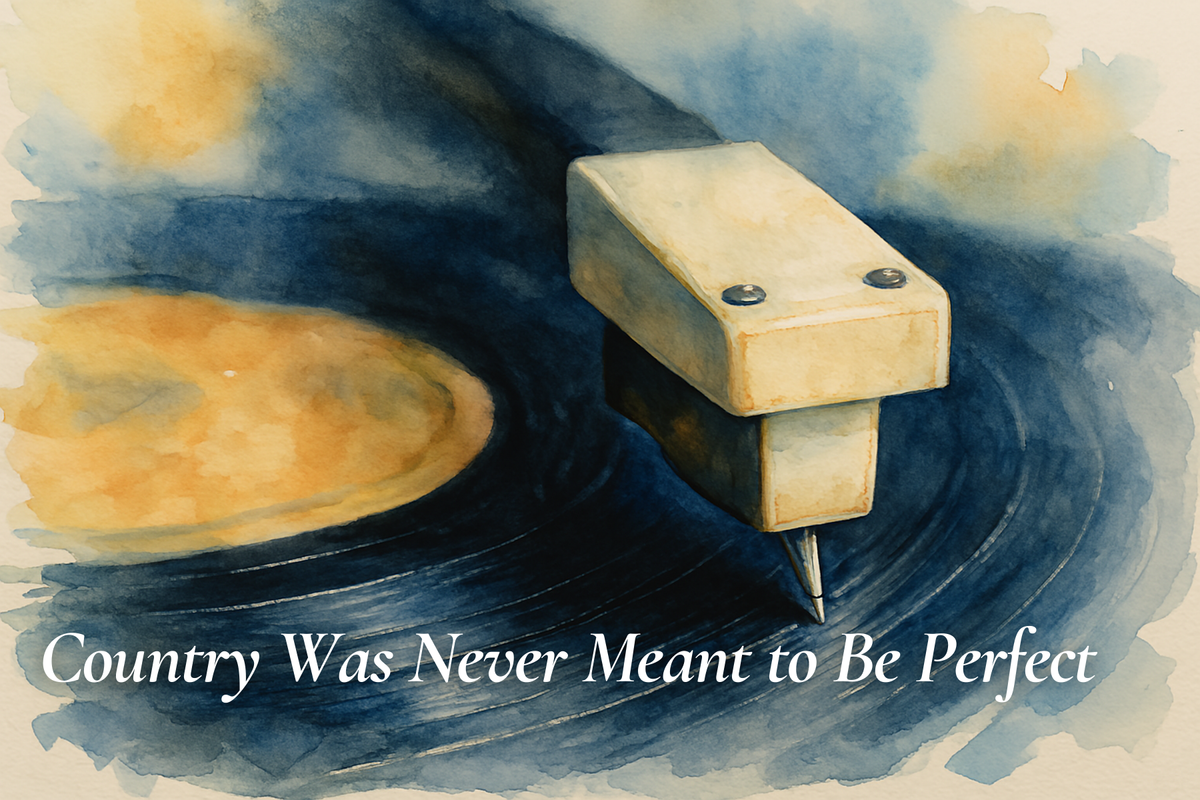
Yesterday, I spun Just to Satisfy You—Waylon Jennings, RCA Victor, 1969—on the air. Shared a photo of it like I always do. Only this time, something wild happened: Waylon’s official account—run by his estate—reshared it.
I was sitting at the house working on church stuff when it happened. Good thing I was sitting.
But the moment that stuck with me wasn’t the reshare. It was the sound. Not the polished perfection of digital playback. Not the remastered version on a streaming service. I mean the literal sound of that record—my record—worn from spins, carved by years, giving a little more of itself away each time it plays.
That track? “Farewell Party.” Written by Lawton Williams in 1960. Little Jimmy Dickens cut it in ’61. Waylon in ’69. But it didn’t become a hit until Gene Watson made it his signature in ’78—so much so, he named his band “The Farewell Party Band.” I’ve introduced Gene on stage twice, and he still closes every show with that song. But there’s something about Waylon’s version… it hits different on vinyl. It’s not the definitive version—it’s the raw version. The vulnerable one.
See, that Waylon record was pre-Outlaw. Pre-rebellion. He was still in Nashville, still under the RCA machine. He didn’t even want to make that album, not really. He was just doing what the label asked so he could hit the road and play what he wanted. He wasn’t making a statement—we found the statement later.
And that’s the thing. He didn’t cut that track thinking it would become a treasure. But now, it is. Not because it’s perfect. Because it isn’t.
Vinyl is like that. It’s the only format that changes every time you play it. A CD plays the same. MP3s don’t wear out. But vinyl? Vinyl is like a live show—it ages, it cracks, it remembers. Every spin is a one-time performance. Every pop and hiss tells you, this is not repeatable.
I’ve got a Glen Campbell Southern Nights where some guy named Clay scribbled his name on the label. Thanks, Clay. I now know what you loved. I can tell what side you played the most. That record has a soul. So does every one of these.
A lot of today’s country? It's in the polish and playback era. Artists chasing clean takes, auto-tuned perfection, and surgically edited emotion. You couldn’t cut six songs in a morning session, six more in the afternoon, and then have the artist the road like Harold Bradley told me they did with Patsy Cline on “Crazy.”
But that’s the magic: country music was never about perfection. It was about presence. About making a moment that couldn’t be replayed the same way twice.
Just like a good spin of vinyl.
During a break in the Justin Reed Show on 105.3 WOW Country, Justin shows off the liner notes from his Waylon Jennings Box Set on CD

